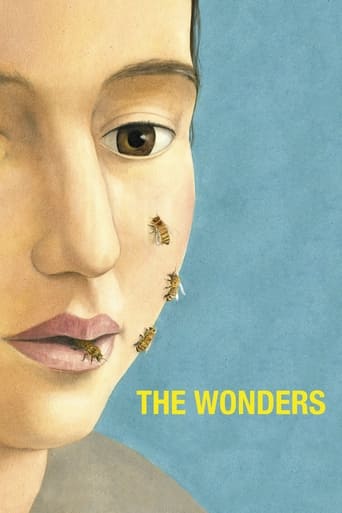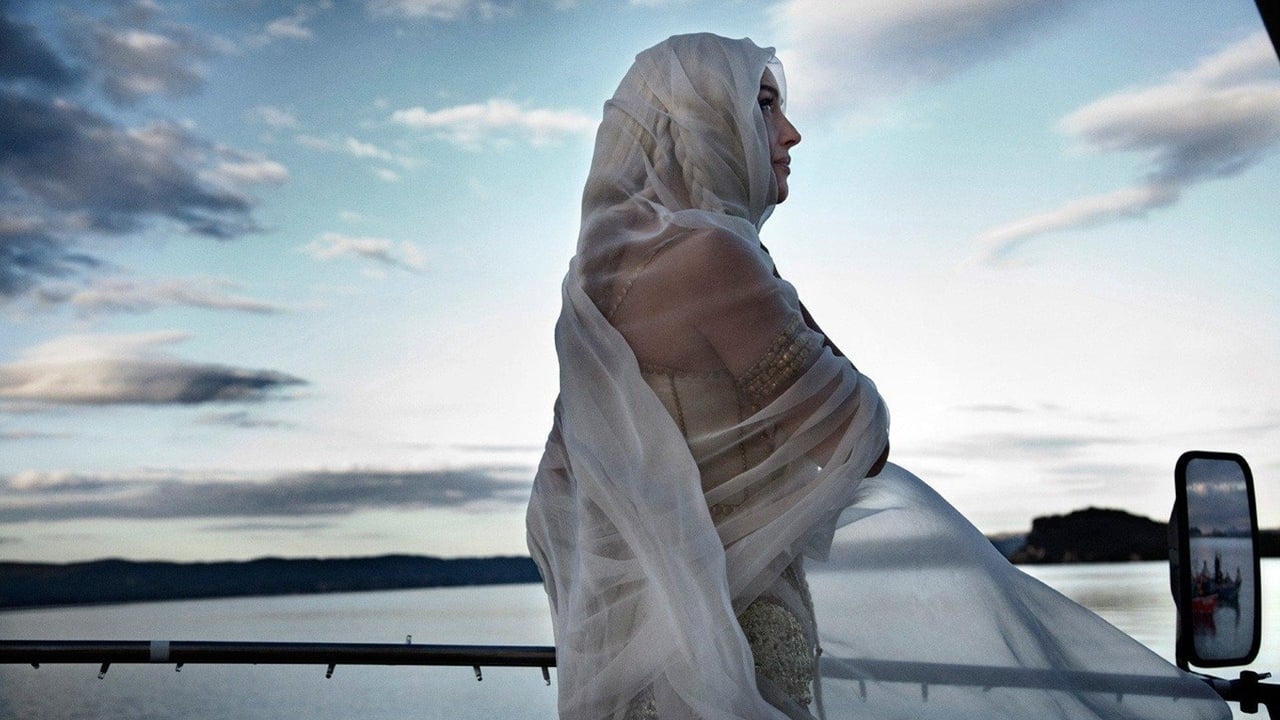Walter Brynjolfson
For a film about a simple Italian beekeeping family there is a wealth of depth and imagination. I personally wasn't a fan of the visuals, editing, and cinematography; but the screenplay was phenomenal, the acting was superb, and the story struck at the heart of family life amidst difficulty. I don't know much about Italian lore and history, but I would guess this film is some kind of modern take on an ancient Etruscan fairy tale. A struggling rural family with scores of problems is almost entirely dependent on the oldest daughter to provide. In order to help her family, she calls on the help of a fairy. In this case, the fairy is the host of a prize show. All in all, it's a brilliant revision of folklore. It goes to show that moral messages of ancient stories apply just as much to us today as they did to ancient civilizations 2700 years ago.
JvH48
Saw this at the Film Fest Ghent 2014, expecting something remarkable or novel, given what Cannes jury had to say about it. Alas, for me it failed on several counts, mainly because I don't think that throwing in an ample variety of ingredients does produce a good stew. It seems that the film makers tried to follow a complicated recipe, but could not come to a consistent and balanced product. The best example of something completely out of tune was the bee produced by Gelsomina out of her mouth on two occasions, the last one as part of the TV show she signed up her family for. It should be possible to find something better for this purpose, and still having a relationship with their bee keeping business where it was all about.The synopsis on the festival website stated that Gelsomina was the center of the bee keeping business, and particularly the honey extraction process, but I found that not so clearly shown while watching the movie. Yet she is mentioned several times as "head of the family", while all signs seem to point in different directions. Also, when the boy Martin is introduced, everyone points to Gelsomina as the responsible person, and again I don't understand as it is the father who introduced the boy in the first place. I apparently did miss something important.An annoying aspect of this movie is that it happened a few times that the scenery jumped to several hours later in time, without being clear about the change. For example: after the day that the boy was lost on the island, we suddenly see Gelsomina in action on the farm, requiring us to take some time noticing we are at a different time and place now, and adjust our focus accordingly. It happened to me several times, but this was the most prominent occurrence that I still remember.While this film's Grand Prize of the Cannes jury rises expectations, I'm disappointed because of my overall feelings that the end product is not in any way remarkable, all things considered. It happened many times before that I didn't agree with festival juries, however, so this may become a fact of (my) life. It may be so that the jury admired the portraying of life on a farm, being a non-issue for me grown up on a farm myself. So all the tedious tasks and the inherent dangers in animals and machinery were merely deja-vu for me, nothing out of the ordinary. Similarly, the mixed household and the assortment of very different people having to work together, is normal on a farm and standard operating procedure. In other words, I'm prejudiced in duplicate, on one hand to find something that the Cannes jury found remarkable, on the other hand seeing a portrait of farming that offers nothing special for me. I'm inclined to forget about the jury and let aforementioned faults weigh in to arrive at a negative conclusion.
Ruben Mooijman
'Certe cose non si possono comprare'. 'Certain things you can't buy'. It's not often that one line from the script summarizes the whole film. But when the beekeeper Wolfgang speaks these words, he explains exactly what this film is about. 'Le Meraviglie' shows the life of a family of Italian beekeepers, intent on living a simple, rural, pure life, without any harmful influences from the outside world. Father Wolfgang and mother Angelica raise their four daughters according to strict rules: no television, no fancy clothes, no luxury. They have trouble making ends meet, and the father is a demanding man, who lets the children work in the honey-making business as if they were grown-ups. This is not a happy family: the father is ill-tempered and the mother is worried about the financial difficulties they have to cope with. When the oldest daughter decides to participate in a contest for regional agricultural products, the family is forced to enter a world of commercial marketing and fancy promotion. This is the moment when the father tells a television show hostess that certain things are impossible to buy. He doesn't say what exactly, but it's clear what he means: integrity, purity, simplicity, and authenticity. This is not a plot-driven film. It shows the confrontation between ideals and constraints, between dreams and reality. The film maker doesn't take sides. The commercial contest, representing the modern world, is ridiculous because of its slick sales pitch. But the life on the farm, representing tradition, is not happy and carefree either. 'Le Meraviglie' is filmed in an unpolished, realistic style, almost like a documentary, with bright lighting and hand-held cameras. The undisputed star of the film is the young actress playing the oldest daughter, an innocent girl who seems torn between loyalty towards her father and despise for his strict rules.
Horst in Translation (filmreviews@web.de)
I have to say the plot of "Le meraviglie" or "The Wonders" did not interest me that much, so I probably would not have decided to give this film a watch if it wasn't for the Jury Grand Prize win in Cannes this year, which made me a bit curious. In the end it was a good decision. The film did not disappoint, but I have to say it did not wow me either.All the actors give decent performances, the MVP possibly is Sam Louwych as the lead character's father. However, he also has the most material to work playing a hot-tempered honey farmer. The boring agricultural life becomes a lot more interesting for him, his wife and four daughters when Gelsomina (the girl in the center of the story) decides to sign up the family for a TV show where they can possibly present their products. And if that was not already enough, the father decides to employ a boy with a criminal past in order to help with the bee farming. Other than that, there is the usual struggles you may expect the family to trouble in their hard work: pesticides, rain storms and accident with the dangerous machinery. The only thing I completely disliked about the film where the two scenes when Gelsomina has a bee in her mouth, on one occasion with the boy, on the other occasion at the TV show production. To me, these felt really unpleasant to watch. This may come from my general dislike of stinging insects, but I also felt that these really did not fit the tone of the rest of the film. Other than this minor criticism, I think the movie is worth a watch. It is not too often that Italian films make it here, so I am glad I took the chance.


 AD
AD



